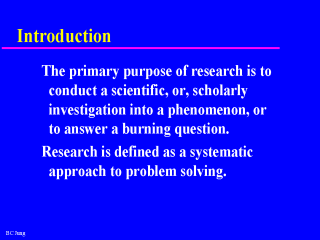| front |1 |2 |3 |4 |5 |6 |7 |8 |9 |10 |11 |12 |13 |14 |15 |16 |17 |18 |review |
 |
Just like other scientific disciplines, Public Health
support the work of researchers in its field. Just like other academic disciplines, Public
Health includes many specialty areas, each conducting their own research, i.e., health
education, health policy, etc. But, if you had to choose one area that is most close to
the heart of what Public Health is all about, it’s Epidemiology. While Epidemiology is the study of the distribution of disease, the research methods used and developed by epidemiologists have been used also to study “disease-related” issues. For example, health services researchers look at how health services differ for different populations. Health education researchers look at how people react to disease and how these behaviors impact quality of life. Thus, findings from epidemiological studies should serve as the foundation for research in health education, health policy, etc. because a better understanding of how disease impacts populations is crucial before we can even think of how to better deliver services, educate people about health behaviors, and develop rational public policy. |